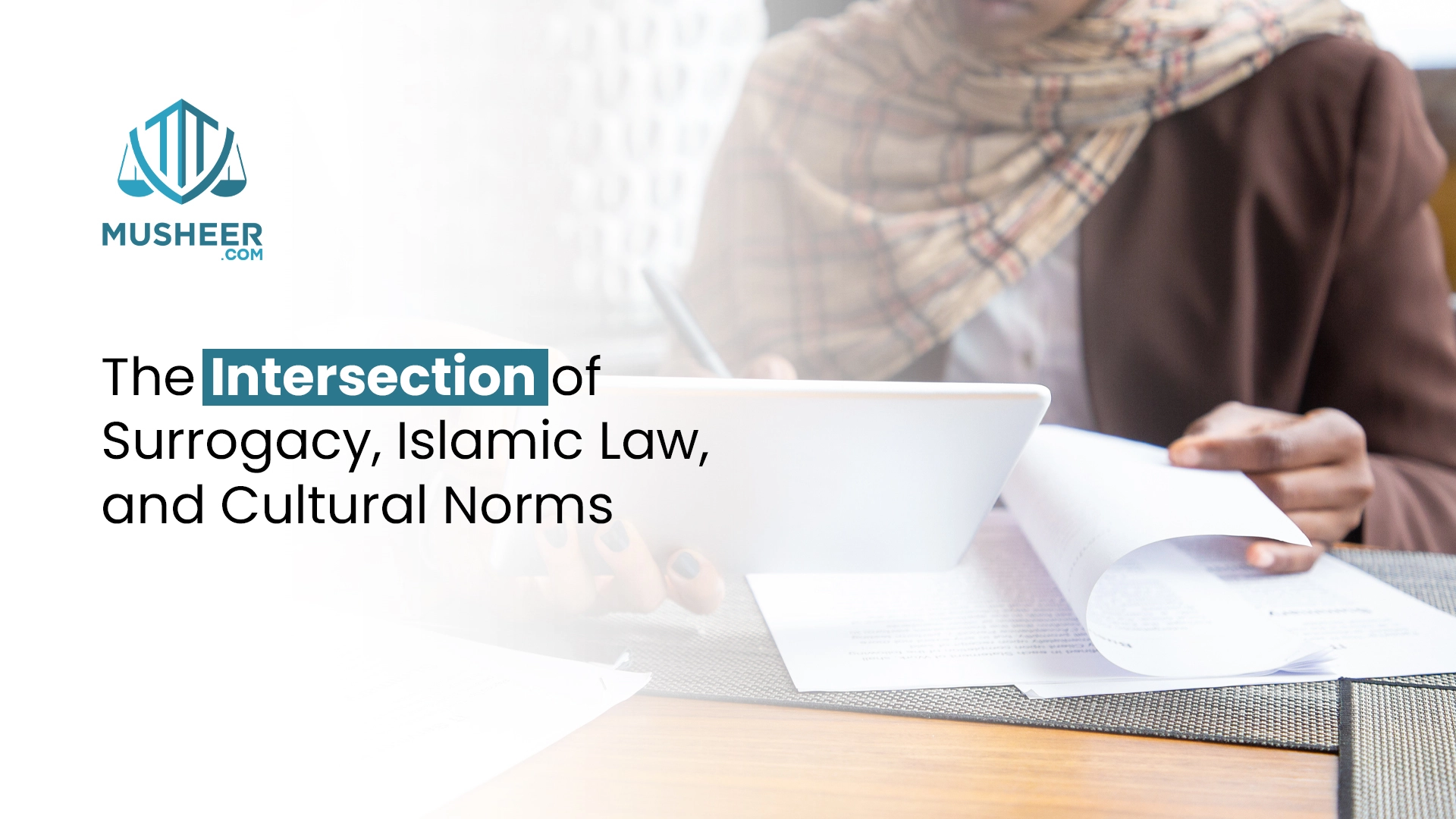Surrogacy: Introduction
Surrogacy is a practice in which a woman (the surrogate mother) bears a child for a couple unable to produce children in the usual way, usually because the wife is infertile or otherwise unable to undergo pregnancy.
Surrogacy is multifaceted and involves contentious matters encompassing ethical, scientific, and legal implications. Particularly, commercial surrogacy sparks intense debates among legal experts, economists, and policymakers, especially when it involves affluent individuals from developed nations utilizing the reproductive services of economically disadvantaged women in developing countries. Commercial surrogacy involves compensating women for their services and covers medical expenses, distinct from reimbursing a friend's pregnancy-related costs.
There are two primary surrogacy types: traditional, where the surrogate's egg and body both are used, and gestational, wherein embryos from either the intended mother or a donor are implanted in the surrogate mother. The advent of In vitro Fertilization (IVF) has significantly amplified the popularity of surrogacy.
While, the supporters of the concept argue that surrogacy allows a couple to have their own child, which is an innate desire of all human beings, the downsides of it cannot be overlooked.
There is no legislation in Pakistan regarding commercial surrogacy or surrogacy in general. However, in the case of Farooq Siddiqui v. Mst. Farzana Naheed (Sh. Petition No.2/I of 2015), the Federal Shariat Court (the “FSC”) of Pakistan examined the compatibility of surrogacy with Pakistani law and Islamic jurisprudence, shedding light on the intricate interplay between legal principles, cultural norms, and personal beliefs.
In a unanimous decision by a three-judge bench, the FSC established that the conception of a child through medical intervention using the genetic material of legally wedded couples (without the involvement of a third party) aligns with Islamic law. Nevertheless, the FSC ruled that surrogacy, in its wider context, is inconsistent with Islamic principles, proposing that the law should be amended to invalidate surrogacy agreements and the Penal Code to establish penalties for all parties engaged in such arrangements.
The case revolves around a Pakistani born American doctor who engaged in a surrogacy arrangement with a Pakistani woman due to his wife's inability to conceive. This article delves into the Court's analysis, addressing its stance on surrogacy, the implications for Islamic law, and the influence of local customs and beliefs.
The Central Issue: Surrogacy within Islamic Law
The important question raised by the Court in this case is whether surrogacy aligns with Islamic law. The Court in this judgment focuses on the permissibility of surrogacy under Islamic teachings, with the underlying understanding that any contract pertaining to an unlawful act is considered void. The Court, while evaluating the validity of surrogacy contracts in Pakistan primarily rests its reasoning on cultural norms and local customs and draws a distinction from other secular states where surrogacy contracts are valid and prevalent.
Islamic View on Conception and Marriage
Under Islamic law, reproduction should exclusively occur within the confines of marriage (nikāḥ) between a husband and wife. This perspective is based on the belief that the Qurān forbids sexual relations outside of marriage. The Court extends this viewpoint to surrogacy, emphasizing that any form of conception outside the marital union contradicts Islamic principles.
In-Vitro Fertilization and Surrogacy Methods
The Court in the judgement, distinguishes in-vitro fertilization from other forms of surrogacy. While the Court condemns all forms of surrogacy as ḥarām (prohibited), it concludes that test-tube babies are permissible as they involve the genetic material of a married couple.
The Court holds that if a baby is born through a mechanical/medical process where the sperm belongs to the actual father and the egg to the actual mother which is fertilized in a test tube and the embryo is then placed in the womb of the actual mother, in that case, the procedure would be legal and lawful. In all other cases surrogacy procedure would be unlawful and against the Injunctions of Holy Quran and Sunnah.
The Court clarifies that where another woman is arranged as a surrogate mother against the monetary consideration or some other reason, the whole procedure as well as the resulting birth of the child would be illegal and against the Injunctions of Holy Quran and Sunnah.
The Court also discussed that in a case, where a father is unable to produce a child and the sperm is obtained from a third person, then that third person will be the father of the child. This arrangement is also illegal and against the injunctions of Islam.
Influence of Cultural Norms and Western Practices
The Court's decision is not solely based on Islamic principles; it heavily considers local customs and practices, as well as Western attitudes towards surrogacy. The Court considers the whole concept “illogical”, “cruel” and “illogical” and raised valid concerns such as surrogacy tourism, the emotional damage of separating a child from its birth mother, and the potential challenges faced by disabled children are factors that influence the Court's stance. These concerns, while not grounded in Islamic law, reflect cultural and societal values.
Key Points in the Court's Verdict
- Distinction in Surrogacy Cases: The Court establishes a significant dichotomy in its approach towards surrogacy. It deems surrogacy lawful only in cases where the child is conceived using the genetic material of the actual parents – their sperm and egg – and carried to term by the mother. This perspective aligns with the Court's interpretation of Islamic principles, which prioritize the biological link between the child and its parents within the bounds of marriage.
- Proposed Amendments to the Contract Act, 1872: The Court suggests that the Contract Act of 1872 should undergo suitable amendments to reflect that any agreement regarding surrogacy would not be enforceable by law as the same would contain unlawful proposals and unlawful considerations. By rendering such agreements unenforceable, the Court aims to reinforce its stance against surrogacy practices that fall outside the boundaries of Islamic law.
- Amendments to the Pakistan Penal Code: A significant facet of the Court's judgment is the proposed amendment to the Pakistan Penal Code. The Court recommends the introduction of specific provisions that define surrogacy as an offense. This offense would carry punitive measures, including imprisonment and fines. Those found participating in surrogacy arrangements, including couples, surrogates, and medical professionals, would be subject to legal penalties. Furthermore, the Court calls for accountability for doctors involved in sperm and egg banks, suggesting that their participation in surrogacy arrangements should lead to the revocation of their medical licenses.
Significance of the Verdict
The Federal Shariat Court's verdict in Farooq Siddiqui v. Mst. Farzana Naheed carries profound implications for surrogacy in Pakistan. By delineating a clear distinction between permissible and impermissible assisted reproductive arrangements, the Court reinforces the priority placed on the biological link between parents and children within the framework of Islamic marriage.
Furthermore, the Court's call for legislative amendments to both contract law and penal law signifies a broader societal shift in addressing surrogacy. The proposed penalties for participants in surrogacy arrangements, including medical professionals, emphasize the Court's commitment to curbing practices it deems contrary to Islamic principles and cultural norms.
Conclusion: A Complex Intersection
Farooq Siddiqui v. Mst. Farzana Naheed exemplifies the intricate interplay between Islamic law, cultural norms, and personal beliefs. The Court's ruling, while purportedly grounded in sharīʿa, reflects the broader context of Pakistan's customs and societal attitudes. This case serves as a reminder that judicial decisions can be influenced by cultural factors that may extend beyond the strict boundaries of legal doctrine. As the legal landscape evolves, the delicate balance between tradition and progress will continue to shape the interpretation and application of Islamic law in the context of modern challenges like surrogacy.









